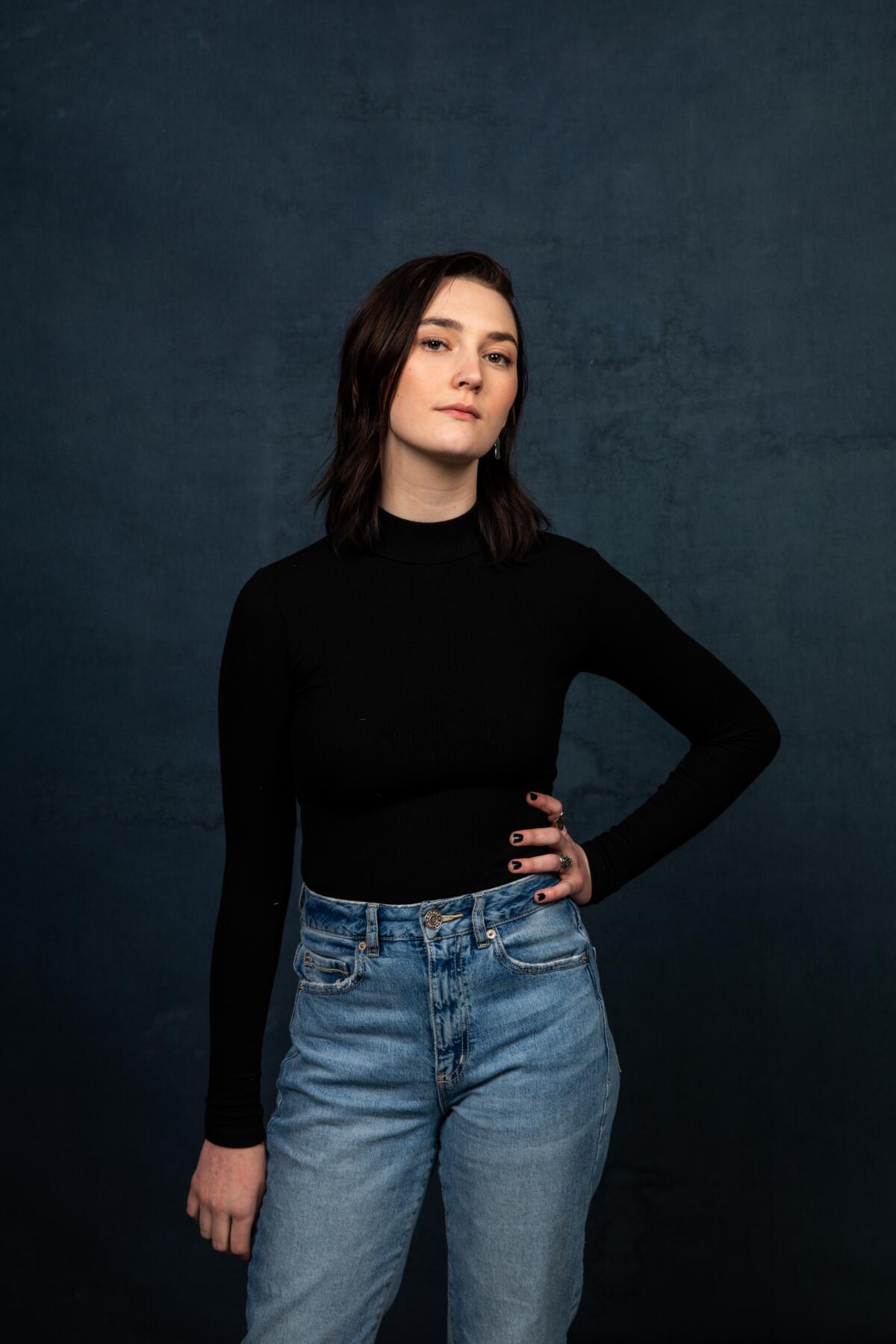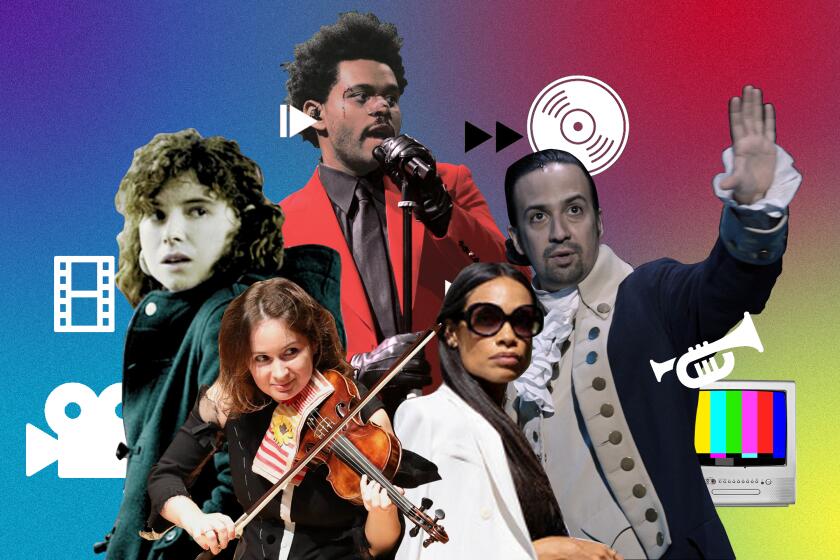First time actor Sidney Flanigan taps raw ability for abortion drama

- Share via
It’s one of the most powerful scenes of the year, in one of the most powerful films of the year.
A teenage girl answers intake questions from a sensitive provider in a small Planned Parenthood office. She has been strong until now. Then, some of the standard inquiries, to which she can choose a response among “Never,” “Rarely,” “Sometimes” or “Always,” dredge up hurts that are far from healed. There’s no fancy editing, showy cinematography or swelling score. Like so much of “Never Rarely Sometimes Always,” it simply feels like truth captured on-screen. And it demands much of the movie’s lead: a novice named Sidney Flanigan.
“It is the first acting experience I’ve ever had,” said Flanigan, 22. “When we were doing the intake scene, she [writer-director Eliza Hittman] made sure I had a private room to be in before we did it, because usually there’s all that commotion on set. It’s not like we had trailers or anything,” she said, allowing a chuckle over the spare conditions on the low-budget indie. “We were shooting in Planned Parenthood, so they gave me an office to sit in and she came in and ran the scene with me. It was little things like that Eliza was conscious of.”
Movie theaters closed. Broadway went dark. Concert venues fell silent.
“Never Rarely” follows Autumn (Flanigan), a Pennsylvania teen who discovers she is pregnant and decides to have an abortion. Unable to have the procedure in her home state, she treks to New York City with her cousin and best friend, Skylar (Talia Ryder, in her own breakout performance). What the two go through requires what could be described as the ordinary courage too often part and parcel with simply being a woman.
Hittman met Flanigan while working on a documentary in Flanigan’s native Buffalo, N.Y., in 2013. The filmmaker followed the nascent singer-songwriter on social media over the years, then asked her to audition for the role of Autumn.
Flanigan said, “At first, I was very thrown off, because I just barely remembered who these people were. I had never acted before; I didn’t think it was something I was capable of. Then I Skyped with Eliza and read the script and I felt a lot more interested after that: ‘Oh, this is a really great story.’
“It ended up being a super-amazing and transformative experience. It was life-changing.”
Hittman allowed that she was concerned how the inexperienced Flanigan might respond to the rigors of a film shoot but was sold after her audition: “Her auditions are incredible. They have a tremendous amount of raw intuition and talent.”
Raw ability is one thing, but the film — especially that intake scene — requires emotional availability to which trained, veteran actors aspire. And it’s all accomplished with a simplicity that reads as honesty.
“She showed an intuitive understanding of dramatic beats and turning points and intimacy with the camera,” Hittman said. “She had a palpable inner world and struggle. As audience members, even though we are not always listening to dialogue, we are reading thought across the screen. There was always a lot happening inside her head.”
But there was even more to why Flanigan was the choice. Hittman said that after meeting Flanigan when she was 14, “She was always a reference point for the character. Whenever someone would say, ‘What’s the character like?,’ I would pull up pictures of Sidney.”
Flanigan relied on her veteran director: “I felt really comfortable working with her. Coming into it with no background whatsoever, I was a little scared. ‘I don’t know if I really belong here.’ But at the same time, I’m a performer, and I feel passionate about this story. I allowed myself to go into emotional places I haven’t visited in a while.”
“I think everybody is talking about the pivotal [intake] scene,” said Hittman. “She is so phenomenal in that scene, because she’s doing what actors do. She is the character at her most vulnerable, and she’s drawing so clearly from her own experiences. She’s drawing from the deepest places.”
“Eliza had given me that room to just be alone in,” Flanigan said. “She told me the questions in the beginning, the regular medical questions and stuff — ‘Does your family have a history of heart disease?’ — I could just answer those as I would myself, so I didn’t have to think so much. So I went in there and honestly just reached for my most repressed memories and let that play itself out there. I usually don’t share what those are because they’re personal.
“I just remember, strangely, feeling afterwards — I felt really good. Like, ‘Whoa.’ It’s one of the moments that made me feel like I like acting because you have all these emotions and experiences and sometimes you feel out of control; then being able to harness them for something artistic and important to me ... It felt really cool.”
She’s also seeing that the film is having an impact on others.
“I’ve had girls message me on Instagram or friends of mine reach out and tell me really personal stories about things that have happened to them that they related to in the film, that made them feel validated and heard and seen, and that was really amazing. It’s getting through to people that really need it.”
Our BuzzMeter film experts predict the 2021 Oscar winners. You can vote, too - polls are open in all 10 categories they pick.
More to Read
From the Oscars to the Emmys.
Get the Envelope newsletter for exclusive awards season coverage, behind-the-scenes stories from the Envelope podcast and columnist Glenn Whipp’s must-read analysis.
You may occasionally receive promotional content from the Los Angeles Times.












